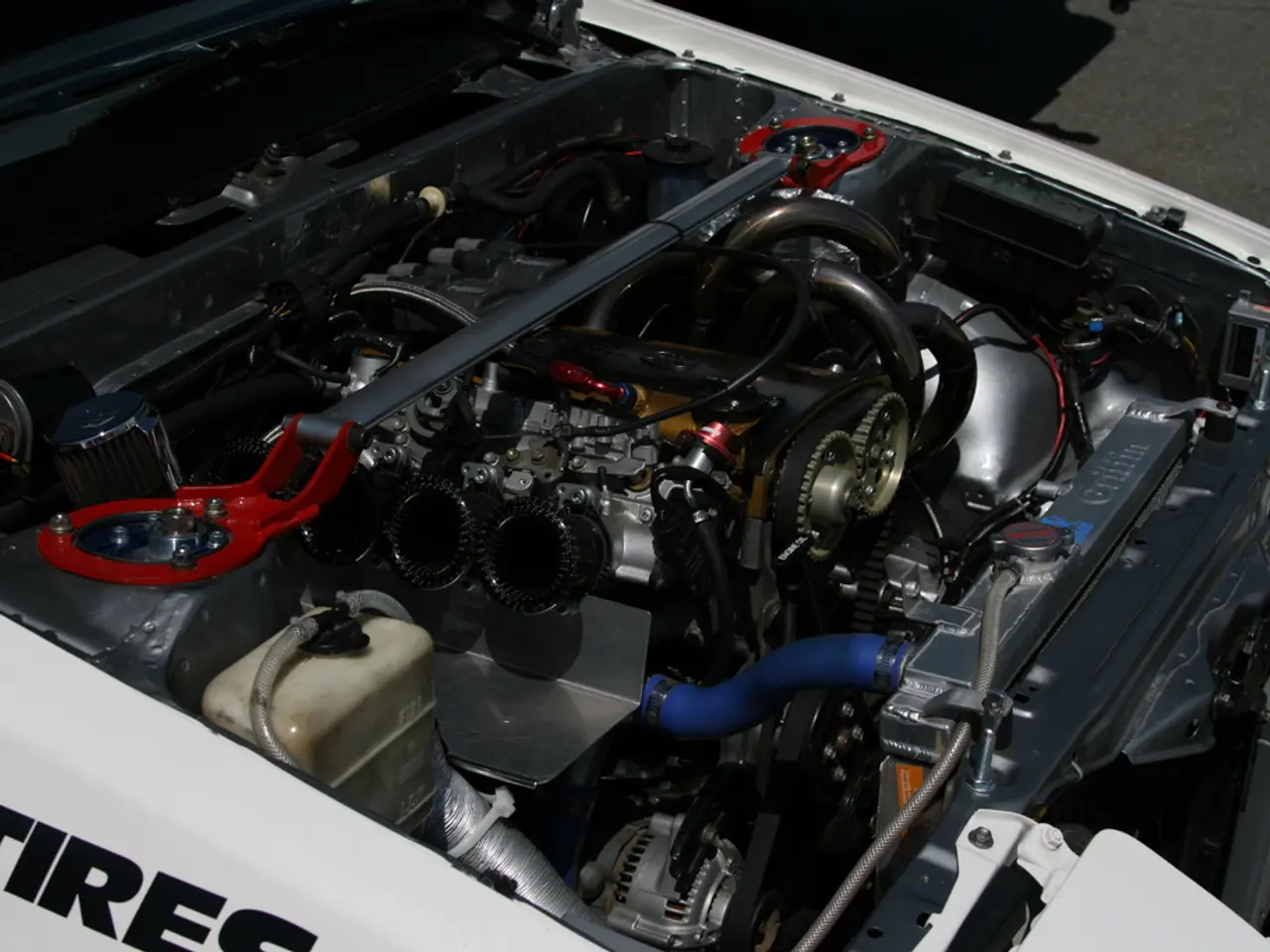Tensions surface within the German government regarding nuclear energy policy
In a not-so-major tiff over organizing an EU event in Brussels, two influential German ministers, Katherina Reiche from the Conservative Christian Democratic Union (CDU) and Carsten Schneider from the Center-left Social Democratic Party (SPD), revealed stark discrepancies in their views on renewable energy, climate protection, and nuclear power.
When it came to unwinding after a long EU meeting, Minister Reiche faced a dilemma - a gathering with countries advocating for renewable energy expansion or a meet-up with pro-nuclear nations. Despite the CDU government's move to phase out nuclear energy after the Fukushima disaster, Reiche opted for the latter, causing friction with her SPD colleague.
Schneider, responsible for nuclear safety, expressed his disapproval. "We have decided to phase out nuclear power. This has been accepted by society," he stated. The SPD is currently focusing on transitioning to renewable energies, with a significant portion of the country's energy already being generated through wind or solar power.
The Battle Lines
The rift between the ministries of Economy (led by Reiche) and Environment (led by Schneider) over nuclear energy was already evident. At the end of May, Reiche publicly stated her openness to all technologies when it came to energy production.
This stance was in contrast to the joint paper by the German and French governments, which indicated that the energy policies would be based on climate neutrality, competitiveness, and sovereignty – essentially promoting all low-emission energy forms. In France, this emphasis is primarily on numerous nuclear power plants.
Germany's Nuclear Exit – A Mistake?
The dangers of nuclear power lie in controlling the nuclear chain reaction and the radioactive waste it produces, which remains hazardous for thousands of years. According to EU treaties, each member state has the right to choose its energy mix.
The controversy between Reiche and Schneider is likely to continue over the issue of new gas-fired power plants. shortly after taking office, Reiche announced plans to construct 20 new gas-fired power plants. This move has raised concerns for Schneider, who is conscious about meeting Germany's climate targets.
A Warning from Climate Experts
The clash between economy and environment ministries on climate protection and energy policy has been a recurring issue. At present, the government's climate goals are being supported by the relatively weak economy and reduced production, particularly in industry. However, researchers question the government's approach, as it is unclear how Germany intends to achieve climate neutrality by 2045. Building new gas-fired power plants could further complicate this plan.
While Germany grapples with this controversy, its neighbor France continues to rely heavily on nuclear power plants for energy production. Even though gas-fired power plants emit fewer greenhouse gases than coal-fired power plants, constructing 20 new ones could jeopardize Germany's climate targets.
While you're here: Every Tuesday, our website editors round up what's happening in German politics and society. You can sign up here for the Berlin Briefing.
[Research sources][1] Der Spiegel[2] Clean Energy Wire[3] European Commission[4] Germanwatch[5] Alliance90/The Greens
- The discrepancies between Minister Katherina Reiche and Carsten Schneider, both from Germany, on renewable energy, climate protection, and nuclear power, have caused a rift in their views, evident in their ministries.
- While Reiche leans towards economic considerations, favoring all technologies for energy production, Schneider, responsible for nuclear safety, is a proponent of transitioning to renewable energies.
- The government's energy policies, as indicated by a joint paper with France, aim to promote all low-emission energy forms based on climate neutrality, competitiveness, and sovereignty.
- The controversy over new gas-fired power plants continues, with Reiche planning to construct 20 new ones and Schneider expressing concerns about meeting climate targets.
- Climate experts question Germany's approach to achieving climate neutrality by 2045, particularly with the construction of new gas-fired power plants, which could complicate the plan.
- Despite Germany's debate on energy production and climate targets, France heavily relies on nuclear power plants for energy production, raising questions about the environmental impact of gas-fired power plants in comparison.
- News outlets and the media, like Der Spiegel, Clean Energy Wire, and the European Commission, report on these political tensions, the general news, and policy-and-legislation updates on renewable energy and climate protection.
- The finance industry also plays a role in these energy debates, as investments in renewable-energy and industry sectors are influenced by government policies and the advancements in technology.




